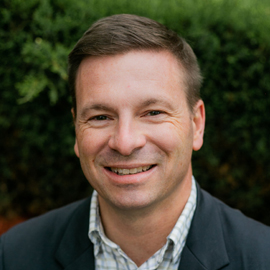
John Pepperdine
Everyone knows staying in contact with your donors is a good thing. But if you’re an executive director or development director, there always seems to be a reason not to make that call, email or other connection with them. You can still a do a bit more editing of that annual report, maybe double-check the budget before the board meeting tomorrow, or take care of some other responsibility gnawing at you. The trouble is, time is NOT your friend and is NOT on your side.
Same goes if you’re a board member or volunteer. Maybe you fear of stepping on the toes of the development office or other staff. But the fact is, you may know these donors personally and, in all likelihood, they’d love a call from you to thank them for their gift – to know you believe in the organization’s work as much as they do. I believe relationships between donors and the organizations they support should be as deep and broad as possible. Every day a donor is not feeling better about your organization is a day that another cause or concern potentially captures their interest and attention. The fact is, your cause and nonprofit is competing in a marketplace of ideas. Donors appreciate when you have that sense of urgency to connect with them, to share your enthusiasm with them, and to know the work your organization or institution does is vital. No, this is not rushing the donor. It is about being responsive and showing them your mission is urgent.
Don’t Let the Chance Slip By
Yes, there’s always something competing for your attention, and there is no one-size answer regarding how you prioritize donor contact. But if you find yourself at the end of the week with no contact with donors or prospective donors, ask yourself:
- Could I have called five donors to thank them, maybe share the next phase of a project, program or initiative they’d love to hear about?
- Should I have sent an appeal to our annual giving donors letting them know we hit a goal or hired new staff because of their gifts?
- Why didn’t I ask the Chair to visit with me about major gift fundraising and how we can get the board to take ownership of it?
It’s not the donor’s job to think about your organization. So in the relationship between the donor and the organization, does the burden fall on you to reach out to donors? Yes, it does. While donors, volunteers, and others who appreciate your mission would love to connect with you more, they’re busy with jobs, kids, hobbies, and all sorts of things going on in their lives. And it’s not only time that may prevent them from initiating contact with your organization, but lack of knowledge about whom to contact within your organization that holds them back. How many times have you wanted to learn more about an organization but didn’t know where to begin? If you’re a board member, executive director, volunteer, or staff member who can build relationships with potential donors, then do it every day and consider it one of your highest priorities. Build that culture of philanthropy.
“Omission Bias” Why We Don’t Act
You might be suffering from “omission bias,” a bias toward not acting because of exaggerated outcomes floating in your head. We can often visualize the worst outcome far more readily than unknown, positive outcomes. For example, you might think, “If I call this donor but say something that will upset them, or they ask a question I don’t have the answer to, they may never give again.” Is it possible? Yes. Is it likely? No.
Most likely, with a 99% probability based on my twenty-five years of fundraising, they’ll appreciate the call. Plus, you’ll learn something about them, and they’ll learn something about you. Best of all, they’ll now think of you as someone they know at the organization, someone they have a personal connection with! All good.
However . . . there’s “Action Bias” too
Now, the second part which may seem to contradict the first: there are NO quick fixes either. The answer to having urgency with donors is not to swing to the other extreme by randomly, even haphazardly, contacting donors without doing a bit of homework or forgetting to consider how you might interact with them. In this case, you might be falling into “action bias,” a term coined by researcher Michael Bar-Eli who studies action taken by individuals who think they’ve solved a problem by taking action. In their mind, any step, regardless of whether it was useful or not, is emotionally satisfying. It’s like a checklist for deck chair arrangement of the Titanic as it slips into depths of the Atlantic.
If you are the social director for such a cruise, please contact us (Make Philanthropy Work), so we can help you.
Ultimately, There’s the Cost of Inaction
Still, what’s the cost of not making that phone call, sending a thank-you note, or just not greeting that donor who volunteers all the time? We can speculate, but we can all agree there is a price for not developing that relationship. What’s the upside? Plenty. Now you that know, start reaching out to those donors and building those relationships!
These are just some of the methods in which you can begin to improve your development efforts, and I invite you to comment on other ideas and experiences that you feel would be effective.
If you would like to learn more about improving the way your organization works with donors, please contact me at john@makephilanthropywork.com.
To receive updates and additional content on best practices in fundraising, please follow Make Philanthropy Work on LinkedIn.



